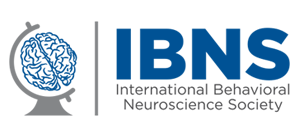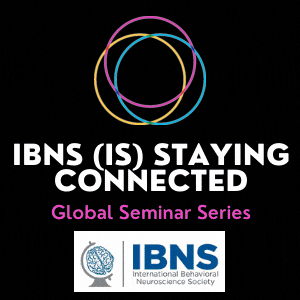|
Join us for a LIVE speaker seminar followed by Q&A
Next presentation will be April 25, 2024 - 1:00 PM EDT
 Deep brain stimulation to reduce anxiety in rats and patients Dr. Laura Luyten, KU Leuven, Belgium
Dr. Laura Luyten will give an overview of her translational work regarding deep brain stimulation (DBS) in the bed nucleus of the stria terminalis in psychiatric patients and in anxious rats. Combining a clinical and preclinical approach is not straightforward, but allows her to integrate applied and more fundamental research questions. Full abstract Anxiety-related disorders come with a tremendous cost. Many patients can benefit from psycho- or pharmacotherapy, but a considerable group remains treatment-resistant and continues to suffer. Deep brain stimulation (DBS) may be a way out for some of these people. In our clinical DBS trials with patients suffering from severe obsessive-compulsive disorder, we identified the bed nucleus of the stria terminalis (BST) as an effective DBS target to alleviate patients’ anxiety-inducing obsessions and their accompanying rituals. Moving my research back from the clinic to the lab, we have focused on the neurobehavioral correlates of manipulating BST function. We have found that, in line with our findings in patients, also in rats, we can reduce anxiety-like behavior using DBS in the BST. Further research pointed out that the BST is most likely involved in threatening situations with a high degree of unpredictability and stress. In addition, our neuroanatomical studies in rats suggested an important involvement of the left BST, a finding that we tried to translate back to the clinic. I am convinced that such back-and-forth translational research can facilitate meaningful clinical progress. However, translation is not straightforward, and I will talk about its caveats and challenges as well. CALL FOR SPEAKERS FOR THE IBNS (is) STAYING CONNECTED GLOBAL SEMINAR SERIES The International Behavioral Neuroscience Society is proud to announce the next installment of our virtual, global seminar series for early career researchers, “IBNS (is) Staying Connected.”
Apply Today!
Your abstract should clearly articulate your research question and approach, the interpretation of your findings and their implications, the innovativeness and impact of these findings, and should incorporate behavior. For the diversity statement, you should describe ways in which you have made efforts or plan to make future efforts to promote diversity and inclusion, with regards to culture, ethnicity, gender identity or expression, national origin, physical or mental difference, politics, race, religion, sex, sexual orientation, socio-economic status, and/or subculture, as described in the IBNS Diversity Statement. A statement evaluated as Outstanding would include specific examples (e.g. partnering organizations, collaborators, and/or applicant led-initiatives/programs) of things that have been done or being planned, as well as a clear explanation how these examples promote diversity and inclusion within the field of behavioral neuroscience. Your diversity statement will remain private among the few members reviewing the applications. Nothing in the diversity statement will be made public.
Apply Today!
|

